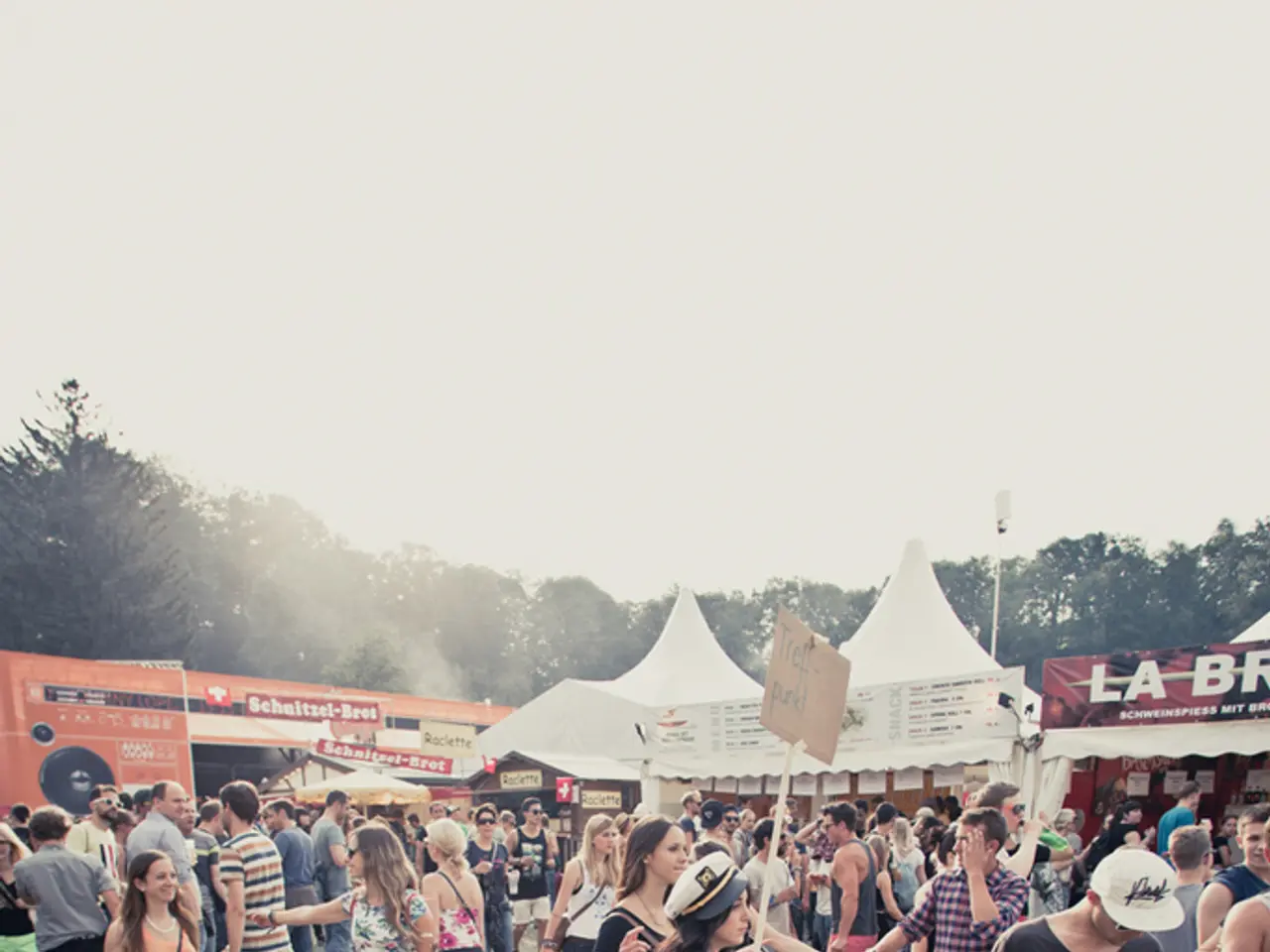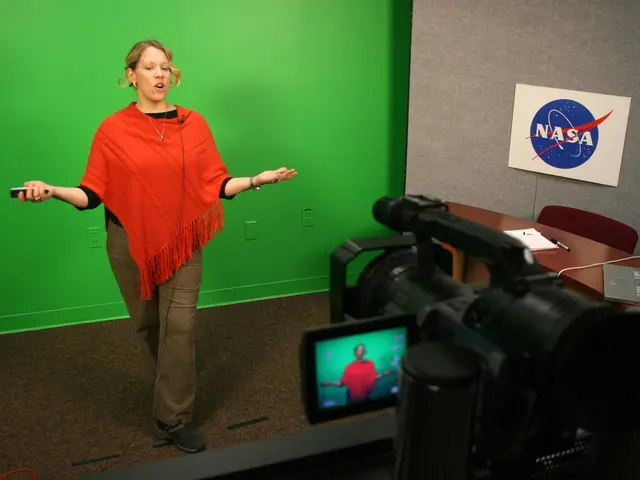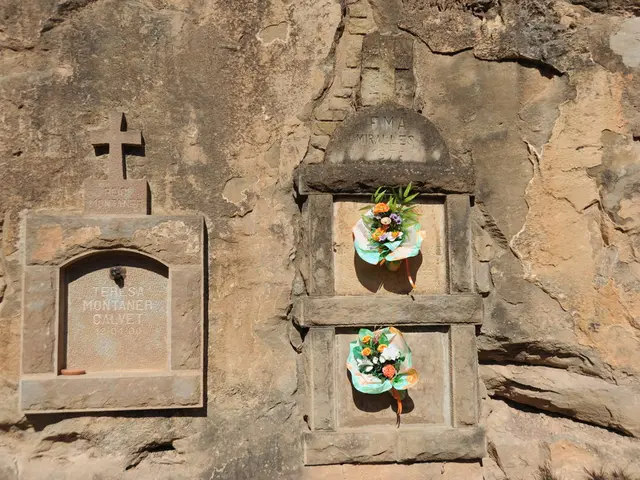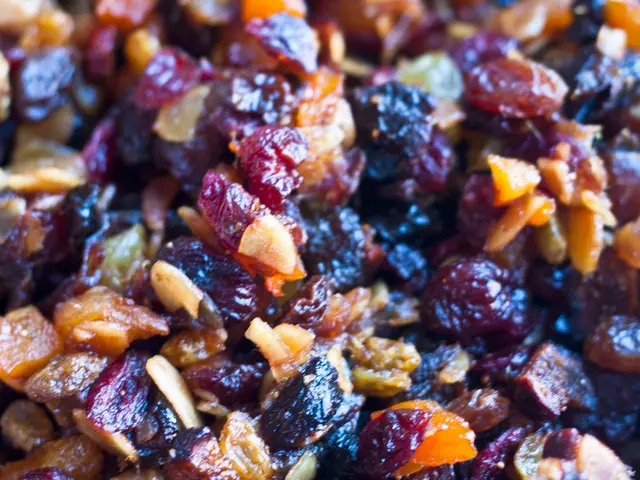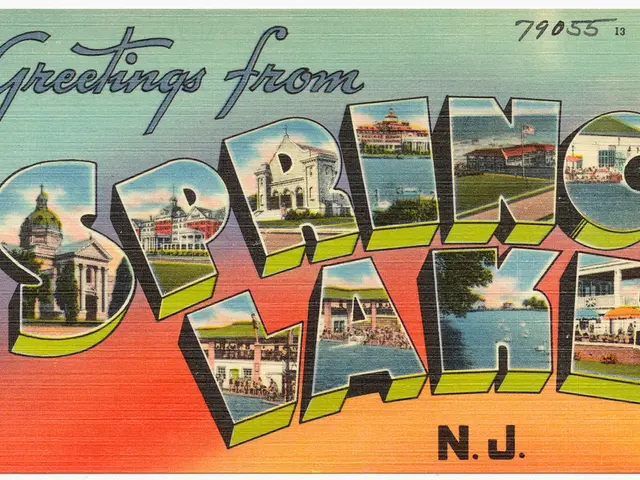Women-Focused Space Exploration Hiking Groups Rise in Popularity
Empowering Outdoor Communities: The Rise of Inclusive Hiking Clubs
In recent years, a wave of hiking clubs catering to women, LGBTQIA+, and BIPOC communities has emerged, creating safe and inclusive spaces for marginalized groups in the outdoors. These clubs, founded by both established brands and independent organizations, are transforming the landscape of outdoor recreation by addressing historic exclusion and safety concerns.
One such initiative is Black Girls Hike, a UK-based club founded in 2019. The group provides a platform for Black women to explore nature and connect with one another, addressing the underrepresentation of Black people in rural settings. Similarly, Hikerkind, a brand focusing on stylish clothing for women's outdoor activities, started a hike club in 2021, creating opportunities for city dwellers to engage with nature.
The Women's Hiking & Wine Society and Women Who Explore are other organizations that offer women-only hiking experiences, emphasizing community, connection, and non-competitive enjoyment of nature. These clubs provide a space for women to grow in confidence and build lifelong friendships, extending beyond the outdoors into overall life confidence and community impact.
For LGBTQIA+ and BIPOC communities, clubs like Feminist Bird Club, Hike Clerb, and Gorp Girls not only improve access and representation but also actively counter experiences of exclusion and discrimination common in traditional outdoor spaces. These clubs foster a stronger sense of belonging, making outdoor activities more accessible, enjoyable, and sustainable for marginalized groups.
Early Majority, a brand founded by Joy Howard (formerly of Patagonia), aims to rethink who has access to nature and serves as an alternative to traditional outdoors brands. The company creates genderless, minimalist clothing designed for outdoorsy settings, with its hiking dress bringing a feminine clothing item into a new space, featuring technical materials and backpack strap compatibility. Early Majority offers a membership model, providing discounts on products such as a windbreaker priced at £195 ($238) for non-members, but £109 ($133) for members.
These clubs have a significant positive impact on their members, fostering empowerment and confidence building through skill development and shared experiences. They create communities that reduce isolation and increase social support, while promoting increased diversity and representation in the outdoors. The clubs also prioritize safety and inclusivity, making outdoor activities more accessible and sustainable for marginalized groups.
Historically, hiking and trail clubs included separate or gender-focused groups. For example, in 1932, early hiking clubs near McAfee Knob in Virginia included an all-female group called “The Nomads” and a women’s college hiking group at Hollins College. Women’s clubs have played a key role in conservation and outdoor advocacy, with monuments like the Women’s Federation Monument in New Jersey celebrating women’s contributions to preserving natural spaces.
Despite these historical contributions, women have historically reported incidents of sexual harassment and assault in outdoor settings. The rise of these specialized hike clubs addresses these concerns, providing welcoming environments and mentorship for women and other marginalized identities.
In addition to hiking clubs, organizations like Biome offer membership communities, providing complimentary subscriptions to Atmos Magazine and other benefits. The founders of Early Majority bonded over hiking and felt that the clothing they were wearing clashed with their love for the outdoors, making them feel inauthentic. This frustration led them to create a brand that aligns with their values and provides clothing suitable for outdoorsy settings.
The impact of these clubs includes creating safe, inclusive spaces that address historic exclusion and safety concerns, empowering and building confidence in their members, fostering communities that reduce isolation and increase social support, promoting increased diversity and representation in the outdoors, and making outdoor activities more accessible, enjoyable, and sustainable for marginalized groups. These clubs are democratizing access to nature, honoring historical contributions of women and marginalized groups to outdoor preservation, and fostering vibrant, supportive communities that celebrate diversity in the wilderness.
Feminist Bird Club, for instance, has donated over $125,000 to causes they support due to revenue earned from selling patches and merchandise, bird-a-thons, and other fundraising efforts. Hikerkind's hike club has clubs in Southern California, Seattle, and New York, with the latest New York hike having 65 participants (mostly women).
In conclusion, the rise of inclusive hiking clubs is democratizing access to nature and fostering vibrant, supportive communities that celebrate diversity in the wilderness. These clubs are making a significant impact on empowerment, community building, and representation in outdoor recreation, addressing historic exclusion and safety concerns, and creating safe, inclusive spaces for marginalized groups.
Read also:
- Renters Ben and Dino believed they had discovered their ideal living situation, but a hidden problem forced them out within 24 hours, unveiling the harsh living conditions faced by millions.
- Nasa's SpaceX Rocket Successfully Launches Castor-3A Mission, Delivering 12 small satellites to orbit
- Benefits of Dry Toilets Over Chemical Toilets:
- Strategies for Reducing Trash during Camping and Vacations
